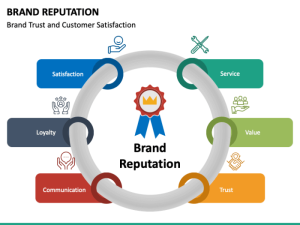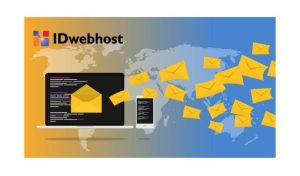
Embark on a journey through the realm of direct marketing campaign examples, where success stories and innovative strategies converge to create a dynamic landscape of marketing excellence. Get ready to be inspired and informed as we explore the fascinating world of direct marketing campaigns!
From groundbreaking tactics to revolutionary technologies, this exploration will showcase the evolution of direct marketing and its profound impact on the modern business landscape.
Direct Marketing Campaign Examples
Direct marketing campaigns have evolved significantly in recent years, with companies utilizing innovative strategies to reach their target audience directly. Let’s explore some successful examples and the impact of technology on these modern efforts.
1. Nike’s “Just Do It” Campaign
Nike’s “Just Do It” campaign is a classic example of successful direct marketing. The company used emotional storytelling combined with targeted advertising to connect with consumers on a personal level. By leveraging social media platforms and influencers, Nike was able to reach a wider audience and create a strong brand identity.
2. Amazon’s Personalized Recommendations
Amazon’s personalized recommendations are a prime example of using technology to enhance direct marketing efforts. By analyzing customer data and behavior, Amazon can provide tailored product suggestions to individual users, increasing the likelihood of a purchase. This personalized approach has significantly boosted Amazon’s sales and customer loyalty.
3. Starbucks’ Mobile App Rewards Program
Starbucks’ mobile app rewards program is another successful direct marketing campaign that leverages technology. By offering incentives and discounts through their app, Starbucks encourages customer loyalty and repeat purchases. The convenience of mobile payments and personalized offers has made the program a hit among coffee lovers.
4. Coca-Cola’s “Share a Coke” Campaign
Coca-Cola’s “Share a Coke” campaign is a prime example of using personalization to engage customers. By printing individual names on their bottles, Coca-Cola created a sense of exclusivity and encouraged customers to share their unique experience on social media. This campaign resulted in increased brand awareness and sales.
5. Airbnb’s “Live There” Campaign
Airbnb’s “Live There” campaign focused on creating emotional connections with customers by highlighting authentic travel experiences. Through storytelling and user-generated content, Airbnb was able to engage with their audience on a personal level, leading to increased bookings and brand loyalty.In conclusion, modern direct marketing campaigns are increasingly reliant on technology to personalize content, target specific audiences, and create engaging experiences for customers.
By incorporating innovative strategies and leveraging digital tools, companies can effectively reach their target market and drive sales.
Marketing E-commerce
In today’s digital age, the relationship between marketing and e-commerce has become more intertwined than ever before. E-commerce platforms heavily rely on marketing strategies to attract customers, drive sales, and build brand awareness in the online space.
Utilization of Marketing Strategies in E-commerce Platforms
E-commerce platforms utilize a variety of marketing strategies to attract customers and drive conversions. These strategies include search engine optimization () to improve visibility on search engines, social media marketing to engage with customers on platforms like Facebook and Instagram, email marketing to nurture leads and encourage repeat purchases, and influencer marketing to reach a wider audience through trusted personalities.
- : E-commerce platforms optimize their websites and product listings with relevant s to improve their rankings on search engine results pages.
- Social Media Marketing: Platforms leverage social media channels to connect with their target audience, share engaging content, and drive traffic to their online stores.
- Email Marketing: E-commerce platforms use email campaigns to send personalized messages, promotions, and product recommendations to subscribers, encouraging them to make a purchase.
- Influencer Marketing: Platforms partner with influencers to promote their products to a larger audience and build credibility through trusted recommendations.
Comparison of Traditional Marketing Methods with E-commerce Strategies
Traditional marketing methods, such as print ads, TV commercials, and direct mail, differ from e-commerce strategies in terms of reach, cost-effectiveness, and measurability. While traditional marketing may have a broader reach, e-commerce strategies offer more targeted and measurable results.
- Reach: Traditional marketing methods like TV commercials have a wider reach but may not effectively target specific customer segments. E-commerce strategies allow platforms to target their marketing efforts to reach a more relevant audience.
- Cost-Effectiveness: E-commerce strategies are often more cost-effective than traditional marketing methods, as platforms can track their return on investment (ROI) more accurately and adjust their strategies accordingly.
- Measurability: E-commerce strategies provide platforms with valuable data and analytics to measure the success of their marketing campaigns in real-time. Traditional marketing methods may lack this level of measurability and actionable insights.
Advertising
Advertising plays a crucial role in promoting products or services to target audiences. It helps create brand awareness, generate leads, and ultimately drive sales. In today’s digital age, advertising has evolved to encompass various channels, including social media, search engine marketing, display ads, and video marketing.
Successful Advertising Campaigns
- Apple’s “Get a Mac” Campaign: This iconic campaign featured a series of commercials showcasing the stark contrast between Mac and PC users, effectively highlighting the benefits of choosing Mac products.
- Coca-Cola’s “Share a Coke” Campaign: By personalizing Coke bottles with popular names, Coca-Cola encouraged consumers to share a Coke with friends and family, leading to a significant increase in sales and brand engagement.
- Nike’s “Just Do It” Campaign: Nike’s motivational slogan “Just Do It” has become synonymous with the brand, empowering athletes and individuals to push their limits and achieve their goals.
Impact of Digital Advertising
Digital advertising has revolutionized the way brands connect with consumers, offering more targeted and personalized advertising strategies. By leveraging data analytics and targeting options, digital advertising allows businesses to reach specific audiences based on their interests, behaviors, and demographics.
Affiliate Marketing
Affiliate marketing is a type of performance-based marketing where a business rewards one or more affiliates for each visitor or customer brought by the affiliate’s own marketing efforts. It is a popular strategy for driving sales and generating online revenue.
Key Players in Affiliate Marketing Ecosystem
- Affiliate: The person or entity promoting a product or service in exchange for earning a commission.
- Merchant: The brand or company that owns the product or service being promoted.
- Affiliate Network: Acts as an intermediary between affiliates and merchants, helping to manage and track affiliate programs.
- Consumer: The individual who makes a purchase or takes a desired action through the affiliate’s marketing efforts.
Examples of Successful Affiliate Marketing Programs
- Amazon Associates: One of the largest and most well-known affiliate marketing programs, offering a wide range of products for affiliates to promote.
- Shopify Affiliate Program: Allows affiliates to earn commissions by promoting Shopify’s e-commerce platform and services.
- Bluehost Affiliate Program: Offers commissions to affiliates who refer customers to Bluehost’s web hosting services.
Branding
Branding plays a crucial role in the success of a company’s marketing efforts. It helps create a unique identity for a business, allowing it to stand out in a crowded marketplace and connect with consumers on a deeper level. Through branding, companies can establish trust, loyalty, and recognition among their target audience.
Importance of Branding
Branding is essential for companies to differentiate themselves from competitors and build a strong reputation in the market. It allows businesses to communicate their values, mission, and personality effectively, helping consumers to form emotional connections with the brand. A well-defined brand can influence purchasing decisions, foster brand loyalty, and drive customer engagement.
- Establishing credibility and trust: Strong branding creates a sense of credibility and trustworthiness among consumers, making them more likely to choose a brand over competitors.
- Building brand loyalty: Consistent branding helps in building long-term relationships with customers, leading to repeat purchases and brand advocacy.
- Increasing brand recognition: A distinctive brand identity facilitates easy recognition and recall, enhancing brand visibility and awareness.
Examples of Successful Branding Strategies
| Company | Branding Strategy |
|---|---|
| Apple | Apple’s minimalist design, innovative technology, and strong brand image have positioned it as a premium and desirable brand in the tech industry. |
| Nike | Nike’s “Just Do It” slogan and iconic Swoosh logo have helped the brand resonate with athletes and consumers worldwide, portraying a message of empowerment and inspiration. |
| Coca-Cola | Coca-Cola’s consistent branding, emotional advertising campaigns, and classic logo have made it one of the most recognizable and enduring brands in the world. |
Internet Marketing

Internet marketing refers to the use of various online channels and techniques to promote products or services to a target audience. Over the years, internet marketing has evolved significantly, with the emergence of new platforms and technologies shaping the way businesses reach consumers.
Various Channels and Techniques
- Social Media Marketing: Utilizing platforms like Facebook, Instagram, Twitter, and LinkedIn to engage with audiences and drive traffic to websites.
- Content Marketing: Creating and sharing valuable content such as blog posts, videos, and infographics to attract and retain customers.
- Search Engine Optimization (): Optimizing websites to rank higher in search engine results, increasing visibility and organic traffic.
- Email Marketing: Sending targeted email campaigns to nurture leads, promote products, and build customer relationships.
- Pay-Per-Click (PPC) Advertising: Placing ads on search engines and websites, paying only when a user clicks on the ad.
Evolution of Internet Marketing
- Early Days: Banner ads and pop-ups dominated the internet landscape.
- Mobile Revolution: The shift to mobile devices led to the rise of mobile marketing strategies.
- Social Media Boom: Platforms like Facebook and Instagram became key players in digital marketing.
- Personalization and AI: The use of data-driven insights and artificial intelligence to deliver personalized marketing experiences.
Successful Internet Marketing Campaigns
- Dollar Shave Club: Leveraged viral marketing and social media to disrupt the shaving industry.
- Old Spice: Used humor and interactive videos to engage customers and boost brand awareness.
- Oreo: Capitalized on real-time marketing during events like the Super Bowl to drive engagement and sales.
- Airbnb: Built a strong brand through user-generated content and storytelling on social media.
Mailing Lists
Creating and maintaining effective mailing lists is crucial in direct marketing campaigns as it allows companies to reach out to their target audience directly through email or physical mail. Mailing lists help businesses personalize their messages, increase brand awareness, and drive sales by delivering relevant content to interested recipients.
Building Effective Mailing Lists
Building a quality mailing list requires a strategic approach to ensure that the recipients are engaged and interested in the content being sent. Here are some key steps in building and maintaining an effective mailing list:
- Offer valuable incentives: Encourage website visitors to sign up for your mailing list by offering exclusive discounts, free resources, or access to special events.
- Segment your list: Divide your mailing list into different segments based on demographics, interests, or purchase history to send targeted and personalized content.
- Use double opt-in: Implement a double opt-in process to ensure that subscribers have actively confirmed their subscription, reducing the risk of spam complaints.
- Regularly clean your list: Remove inactive subscribers and invalid email addresses to maintain a high deliverability rate and engagement levels.
- Provide valuable content: Deliver relevant and valuable content to your subscribers to keep them engaged and interested in your brand.
Challenges and Opportunities
While mailing lists offer numerous benefits in direct marketing campaigns, there are also challenges and opportunities associated with their use:
- Challenge: Avoiding spam filters and being marked as spam by recipients can negatively impact the deliverability of your emails.
- Opportunity: Personalizing content based on subscriber preferences can increase engagement and conversion rates.
- Challenge: Building a quality mailing list takes time and effort, requiring continuous optimization and list management.
- Opportunity: Analyzing data and metrics from your mailing list can provide insights for improving future campaigns and increasing ROI.
Last Recap

In conclusion, direct marketing campaign examples serve as a testament to the creativity and effectiveness of strategic marketing initiatives. By harnessing the power of direct marketing, businesses can elevate their brand presence and engage with their target audience in meaningful ways. Dive into the world of direct marketing campaigns and unlock a universe of endless possibilities for your marketing endeavors!
FAQ Insights
How important are direct marketing campaigns in today’s digital age?
Direct marketing campaigns play a crucial role in establishing direct communication with customers, fostering brand loyalty, and driving sales in an increasingly competitive market.
What sets successful direct marketing campaigns apart from others?
Successful direct marketing campaigns are characterized by their innovative strategies, targeted approach, compelling content, and seamless integration of technology to enhance customer engagement.
How can businesses measure the effectiveness of their direct marketing campaigns?
Businesses can measure the effectiveness of their direct marketing campaigns through metrics such as conversion rates, ROI, customer engagement, and response rates to evaluate the impact and success of their campaigns.






